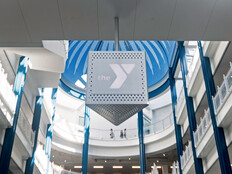Sloan 2016: Personalization Is Essential to Evolving Fan Engagement Strategies
The most critical information that sports teams and venues need to know about their fans isn’t what they want or how to make them happy. It’s who they are.
Tickets are largely anonymous products, so teams are still trying to identify who is coming into their stadiums to watch them compete, says Jared Smith, president of Ticketmaster North America. Teams usually have the name of the person who bought tickets, but that isn’t always the person who uses a ticket to attend a game, and teams still don’t know who may be coming to a game with a ticket-buyer.
Once teams know who is coming to a game, they’ll be able to get a better understanding of their fans and how to deliver an excellent experience, Smith said during a panel discussion Friday at the MIT Sloan Sports Analytics Conference.
Teams want to customize their relationships with fans, says Jonathan Kraft, president of the Kraft Group, which owns the New England Patriots, along with other sports and business ventures. Using tickets on mobile devices is one way to help teams to learn about their fans. Teams also want to know who is interacting with them in other ways, such as website visits, Kraft says.
“If we don’t give them a great experience in their interactions with us, we’re going to have a hard time keeping strong,” he adds. “It’s not about maximizing any one moment. We want to build a relationship that will last a really long time.”
Bartering the Information Transaction with Fans
Most fans don’t want to give up their identity and other personal information for nothing, panelists say, but they usually are willing to do so in exchange for some perks. For example, many teams have developed mobile apps for fans that require them to provide a name and email address. If these apps offer benefits such as allowing fans to order food from their seats or giving them information about how long lines are at stadium bathrooms, fans are more willing to give up their personal information.
Kraft says the Patriots also offer special content via the team app to season ticket holders, such as special video feeds, different angles on replays, and even the opportunity to receive recorded wakeup calls from players. These perks make fans feel closer to the team while providing staff with more data on their best customers. The team is working on adding virtual reality to the offerings from the app, Kraft says.
The Patriots have 18,000 season ticket holders, but the team maintains a database of 5 million names of fans who have attended an event at the Patriots’ Gillette Stadium. Kraft says the Patriots are the NFL’s leaders in engagement on major social media sites, including Facebook, Twitter and Instagram. The team conducts research on every post it makes to each medium in order to examine its performance.
“When we communicate with our fans, we want it to be really focused, really targeted,” he says. “We want them to be really excited to get something from the team.”
Dynamic Pricing Can Put the Right Fans at the Right Games
Fans now collect experiences the way some people used to collect things, panelists say. In this environment, teams and other sports-related businesses can take advantage of “micromoments,” says Michael Rubin executive chairman of Fanatics, an online seller of sports merchandise.
For example, when Klay Thompson of the Golden State Warriors scored an NBA-record 37 points in a quarter last year, Fanatics immediately had products to sell commemorating the event.
“Every day in sports, there are micromoments that happen,” Rubin says. “We need to use that to make a better experience for our fans.”
As they look to improve the fan experience and maximize revenue, many teams are considering dynamic pricing. Under this model, teams may offer discounts on tickets to games against less popular opponents and charge a premium for games against top competition. Sales of tickets on the secondary market, through scalpers, brokers and websites such as StubHub, indicate that teams are inefficient in pricing their tickets and may be missing out on as much as $6 billion in revenue, Smith says. Dynamic pricing could help teams reclaim some of this lost money.
Such measures may be good for fans as well as teams. Kraft says the Patriots have implemented a system that takes advantage of the 60,000 names on the team’s waiting list for season tickets. When a current season ticket holder can’t make it to a game, he or she can sell the tickets to a waitlist fan at face value. The original ticketholders get full value for their tickets and waitlist fans don’t have to pay the usual markup to a broker.
For many teams, the next horizon is to grow the fan base internationally. Technology is shrinking the world, Smith says, and teams in leagues such as the NFL and NBA are benefitting from this – expanding the number of fans around the world. The Patriots have a website that helps fans in other countries set up fan clubs.
But even as they employ advanced solutions to improve the fan experience in their stadiums and around the world, teams must maintain robust infrastructure to support these technologies. For example, Kraft notes that stadium-wide Wi-Fi networking is necessary to support many of the high-tech perks the Patriots offer their fans.
For more information from the show, check out our complete coverage from the 2016 MIT Sloan Sports Analytics Conference.









